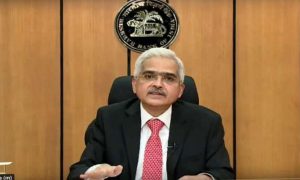Guwahati: Assam Health Minister Himanta Biswa Sarma on Wednesday said people travelling to the state from outside will have to undergo mandatory seven-day home quarantine in the wake of a rise in COVID-19 cases.
However, government officials, those travelling for medical reasons, and people visiting the state in connection with bereavements will be exempted from it, he said.
In a series of tweets, Sarma said, the health department is working relentlessly to ramp up testing by rolling out screening centres in every ward of the state capital.
On April 13, the Assam government had made it mandatory for all air passengers arriving in the state to undergo Rapid Antigen Test (RAT), followed by RT-PCR test, even if the RAT was negative.
While passengers were not to be charged for the RAT, RT-PCR would cost them Rs 500.
This has now been extended to all people entering the state by rail and by road.
Sarma also said, “We’re ramping up #COVID19 testing facilities by creating a screening centre in every ward of Guwahati City so that people can get access to RT-PCR or Rapid Antigen test without any hassle.”
In case, the daily case rate in Guwahati touches 1,000, the Kamrup Metropolitan district administration has been authorised to close educational institutions and hostels, he added.
The number of positive cases in Guwahati has been on the rise with 742 people testing positive on Tuesday.
Read more:Vaccine Passports: What are they, and who might need one?
The health minister said, the state government has granted tankers, carrying nitrogen, argon and oxygen, the status of an ambulance, to enable their hassle-free movement in the state and transit through Assam for the speedy delivery of oxygen to critical centres.
The state reported three more deaths due to COVID-19 on Tuesday, while the number of coronavirus cases rose sharply with 1,651 persons testing positive, pushing the total number of infections to 2,27,473.
Given the spiralling COVID-19 numbers, the Assam government has already ordered to shut markets and shops by 6 pm and permitted 50 per cent of employees, except officers, to work from home in districts having 100 or more active cases.





































